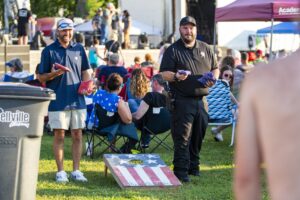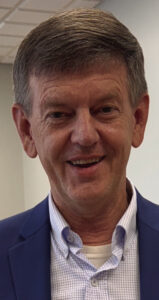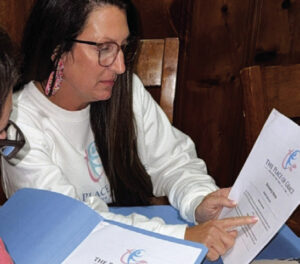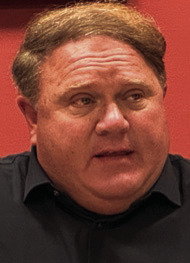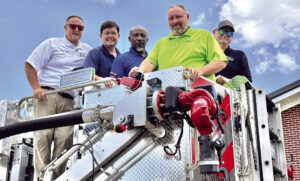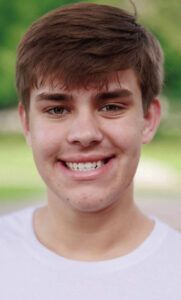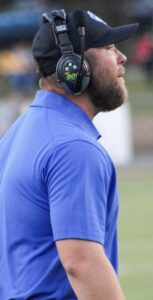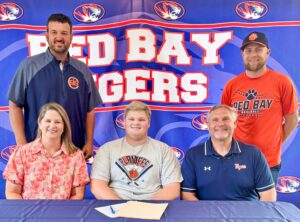Russellville Hospital’s New CEO restores sleep lab to improve community’s quality of life
Are you losing sleep because someone’s snoring is keeping you up? If yes, then it might be time to schedule a visit for a sleep study because there could be a bigger problem at hand.
“There is a huge population that has sleep apnea and they don’t even know they have it, and that is one of the major reasons there was a desire to re-open the lab. The need in the community to improve overall health and help those who’ve been losing sleep because of their partner’s loud snoring has kept them up at night, noticed them stopped breathing while sleeping, and other signs they may be experiencing and are unsure what’s causing the problem,” Ware said.
Russellville Hospital CEO Chris Ware has been in his position for seven months and is committed to making a difference in the county and surrounding areas. As the former CEO of a hospital in Mississippi, he shared that he has seen how having a sleep lab in a community can change lives for the better and wants the same for Russellville. To have this lab makes it convenient for patients who need a study done or want some answers without having to go far to receive them. It is local and offers a relaxing environment that feels like home and less like an examination room.
Ware has made sure that the lab is now fully accredited with the American Academy of Sleep Medicine (AASM) that assures patients who have sleep disorders will receive the highest quality of care and services.
“Sleep apnea has been around for years and so many people do not know they have it, and they do not realize that if left untreated it could lead to heart disease, stroke, depression, high blood pressure, dementia, and so much more. The long term goal of this lab is to create awareness in Franklin County of sleep apnea and the value of proper sleep health. How if not caught early the toll it can take on your body. It is much better to know than to not,” Ware said.
Sleep apnea is a medical condition that disrupts someone’s breathing while they sleep. Ware mentioned that it is a misconception that sleep apnea is tied to just obesity. Size can play a factor in the condition, but it is not the determining factor of the condition, he added.
Nevertheless, the condition does not just red flag loud snoring as the culprit for sleep apnea, but there are things as well that could be tied to the medical condition such as not being able to stay asleep, trouble staying awake, or stopping breathing while sleep, he continued.
“If you are single and live alone, to determine if you snore or not can be hard to detect, but it doesn’t hurt to be proactive and get a study done just to be on the safe side.
Especially with not being able to know if you stop breathing in your sleep or you’re so to speak sucking in the curtains almost with your snoring,” Ware said.
When asked about insomnia compared to sleep apnea, Ware shared that the two have similarities and can go hand and hand, but the two are not the same. However, both can have a negative effect on one’s overall health and quality of sleep.
“Most of the referrals come from husbands and wives that snore seeking to get some relief, but it’s not a joking matter honestly in how things can advance if this condition is not treated. With this sleep lab fully restored and accredited now, we’re getting a lot of referrals from doctors for patients and even residents inquiring for more information. Since reopening last year we have already seen how things have started to progress and are working to continue seeing its growth. In the first month of opening, we had about two referrals, but by July we were up to 14. I believe the numbers will continue to grow the more we get the word out and help the community understand the severity of sleep health and sleep apnea,” Ware said.
According to Ware, there are some commercial insurance companies that require a home study to first be conducted before data in the lab can be done. It also has to be per doctor’s orders as well and a patient has a certain criteria to meet to qualify. It was disclosed that a night stay would begin around 7pm and end as early as 6am the next day.
“The home study is fairly simple. The patient takes home a device no bigger than the size of a roku remote, follow the given instructions, and then bring it back in for the data to be analyzed. If it is determined that a sleep study is further needed, the patient will then come in around about the evening time to stay overnight where further testing will be conducted to see if the patient indeed has sleep apnea or not. The process is nothing extreme. There’s a bed and shower here, where honestly, the patient could leave from here and go directly to work the next morning,” Ware said.
If the data shows that a patient indeed does have sleep apnea, recommended treatment options will be provided, shared Ware. The sleep lab currently has four beds to conduct sleep studies and are open two to three nights a week. Ware has hope to eventually be open seven days a week and be able to take in more patients.
“One of the most rewarding parts of my job thus far is hearing the wife or people in general say that they were glad they went ahead and came in to get checked out. To see patients better and their partner has gained some relief that has led to them sleeping better. It lets me know that we are already making a difference, and are on the right track to a healthier community and improvement of the quality of life,” Ware Said.
Ware advises readers to not wait too late to get answers, give Russellville Hospital a call and let them schedule you an appointment because a good night’s sleep indeed does the body good.


